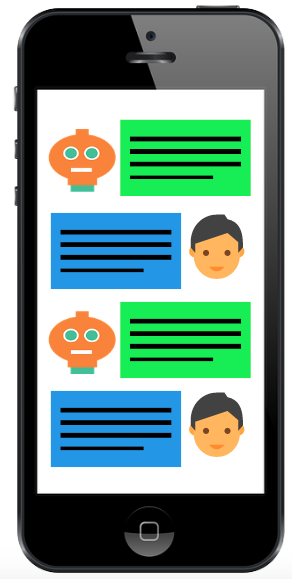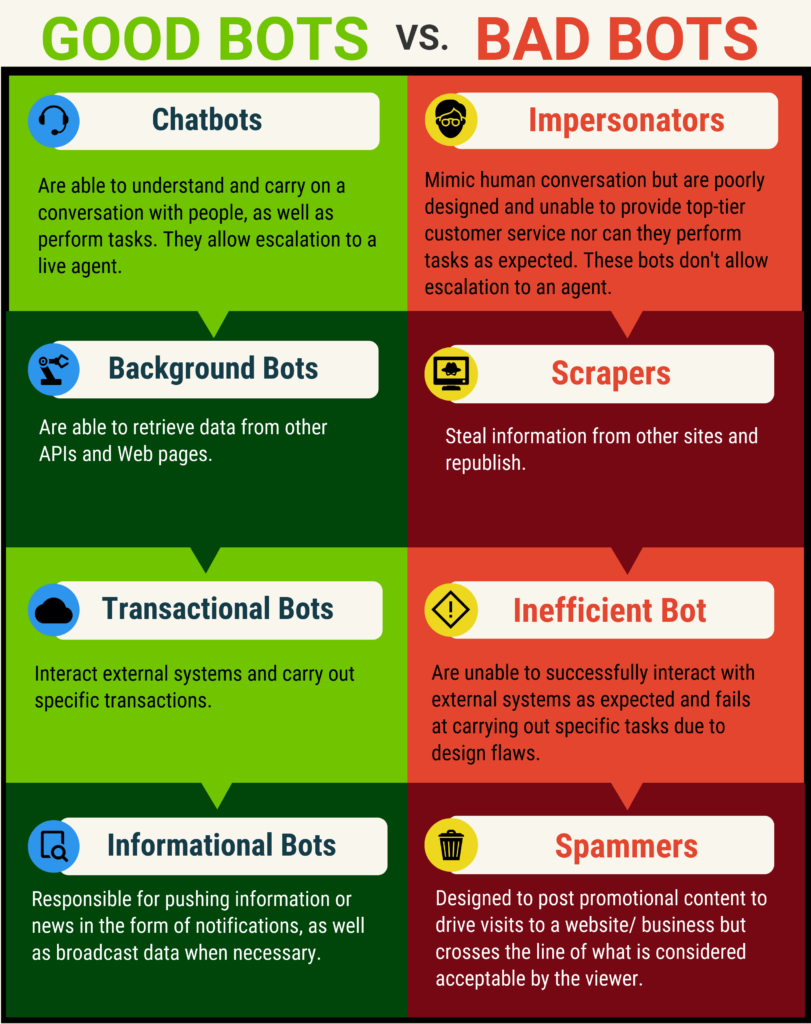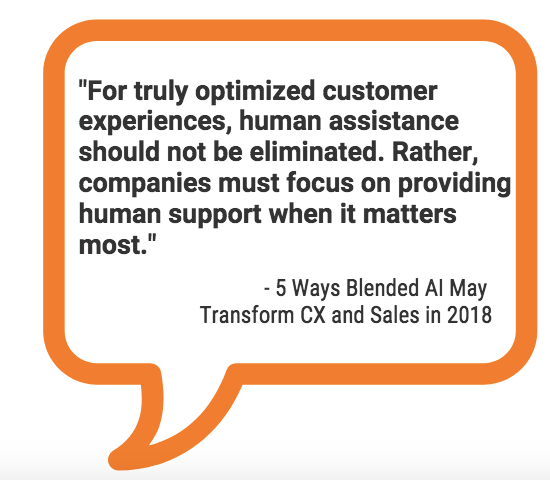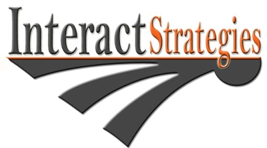There is a lot of exciting talk about Artificial Intelligence (AI) these days and we want to leverage it. Although currently, just 15% of enterprises claim they are using some form of AI, 31% said it is on the agenda for the next 12 months (Source: Adobe). Marketing is changing and it’s important to not be left behind.So let’s look a how this growing technology helps a business to run faster, smarter and even more efficiently.
AI encompasses a large array of applications ranging from data analytics and decision making to conversation and interaction handling. In this article we will start by looking into how chatbots and blended AI can help your business grow and connect with your community.
What are chatbots & what is blended AI?

Just what is a chatbot? A chatbot is a program designed to simulate conversation with human users over auditory or textual platforms such as SMS or chatting platforms (FB Messenger, WhatsApp, WeChat, etc.). Chatbots are powered by rules and often by AI.
Blended AI is a human-machine meld. It’s the use of Artificial Intelligence that blends automation and machine learning with live agents to better manage customer inquiries. For example an “agent assist bot” can provide suggested answers to sales or support request agents who, in turn, decide to use it or not and wrap a reply in a contextual and empathic manner.
How chatbots & blended AI can help your business improve CX
As all businesses know, clients are vital to their livelihood and humans are not infallible. Chatbots and AI can be utilized in various ways to help with the ins and outs of any industry. For example:
- Chatbots can allow businesses to automate many of their day-to-day questions and answers. Many businesses can’t afford to employ customer care representatives to man the phones 24/7. However, more and more people feel that businesses should be available 24 hours a day, 7 days a week. Employing a chatbot can ensure that clients can get help and find answers to their questions 24/7 and means they don’t need to worry about human availability. This frees up staff to be available to provide human interaction when necessary. .
- They can be programmed with AI and NLP (Natural Language Processing):With this, a chatbot gets smarter every time it converses with a guest.

Source: The 2016 Mobile Messaging Report
- Automate simple tasks / provide consistency / process data: Many people may not realize that employing AI in their business isn’t limited to customer interactions. It can do much more than that. AI is adept at processing and analyzing data at speeds humans simply can’t. This makes AI an extremely valuable tool to industries. That being said, it can be utilized to help a company with scheduling, forecasting, or even with customer relationship management by transforming software such as Salesforce, which generally requires a lot of human interaction, into a self-updating, auto-correcting platform that maintains your customer contacts for you. .
- Cost of customer service can be reduced and sales may increase: A study by Juniper Research found that chatbots may help cut business costs by more than $8 billion per year by 2022. As call volume continues to decrease and human agents are allocated to different tasks, costs for customer service will only continue to decrease as well. With this AI can also help to alleviate many of the issues that impede sales growth. AI can work 24/7 with or without human support. This helps to ensure that sales opportunities are not missed and leads are continuously generated. AI can also provide more complete and accurate prospect information and improve the productivity of the contact center. According to Cristian Rennella, CEO of elMejorTrato, since their implementation of a chatbot they were able to fully automate 76.9% of their customer service queries and have seen a 5% increase in sales.
Good bots vs. bads: What you need to know
A poorly deployed bot can hurt the reputation of a business. It is important ensure that any bot deployed is performing up to standard. To do so, it’s good practice to stagger a bot’s deployment. Developing a good bot takes time. A bot’s persona (botsonality) can’t be created overnight and should be tested repeatedly before complete deployment.
The chart below outlines some of the common issues encountered when a bot is not preforming adequately in comparison to what is generally expected of a bot preforming such a task.

Source: Transformers: Bots Poised to Change CUX Across Industries
Before deploying a bot, one should ask themself, what they want their botsonality to be. A truly effective bot is able to understand a customer’s needs and provide solutions that enhance their experience. Doing this builds the personality of the system that will represent a business and gamifies the interaction.
What does it all mean?
 For the purposes of this article we looked at one aspect of AI, chatbots, as they provide a large array of services. Regardless of whether a company belongs to the retail, health care, customer service or any other industry, there are many ways in which chatbots or other forms of AI can be implemented to help streamline company processes and help make the daily lives of both clients and staff easier.
For the purposes of this article we looked at one aspect of AI, chatbots, as they provide a large array of services. Regardless of whether a company belongs to the retail, health care, customer service or any other industry, there are many ways in which chatbots or other forms of AI can be implemented to help streamline company processes and help make the daily lives of both clients and staff easier.
Remember a company’s bot represents their brand. Proper planning is paramount when it comes to deploying a bot. This implementation is not something that should be taken lightly. Ask yourself what the customer experience will be and how to best get customers engaged with the bot. Here at Interact Strategies, we can help with the correct implementation of these technologies.

